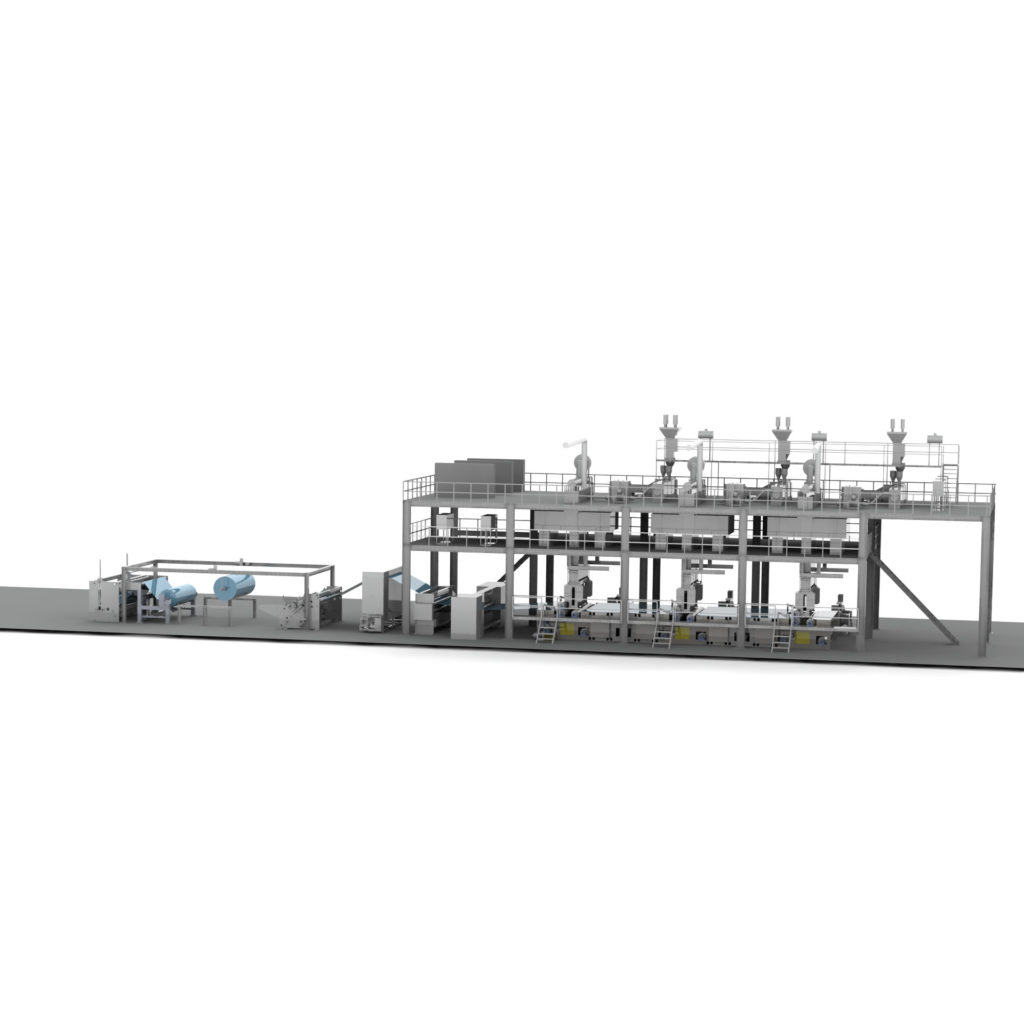Polipropileno (PP) spunbond nonwoven fabric has become a versatile and widely used material across diverse industries due to its exceptional properties, including high strength, durabilidade, and moisture resistance. To meet the growing demand for PP spunbond nonwoven fabric, advanced manufacturing technologies have emerged, and the PP spunbond nonwoven fabric making machine plays a pivotal role in this process.
Understanding PP Spunbond Nonwoven Fabric Making Machine

A PP spunbond nonwoven fabric making machine is a sophisticated machinery system designed to transform polypropylene granules into nonwoven fabric. The machine comprises several key components, including an extruder, spinneret, web-forming unit, calendering machine, winding machine, and cutting machine. The process begins with melting the polypropylene granules in the extruder, followed by spinning them through the spinneret to create continuous filaments. These filaments are then randomly deposited onto a moving conveyor belt, forming a web. The web is subsequently bonded by passing it through a calendering machine, enhancing its strength and cohesion. Finalmente, the bonded fabric is wound into rolls or cut into sheets, ready for various applications.
Types of PP Spunbond Nonwoven Fabric Making Machine
Primarily, there are two types of PP spunbond nonwoven fabric making machines: single-beam and double-beam machines. The single-beam machine features a single spinning beam, while the double-beam machine incorporates two spinning beams. The double-beam machine offers increased production efficiency, enabling the production of more fabric in the same timeframe compared to the single-beam machine. However, it requires more space and consumes more power.
Advantages of PP Spunbond Nonwoven Fabric Making Machine
The adoption of PP spunbond nonwoven fabric making machines brings forth numerous advantages over traditional manufacturing methods. These advantages include:
- Automação: The process is fully automated, minimizing the need for manual labor and enhancing overall production efficiency.
- Consistent Quality: The machines ensure the production of high-quality fabric with consistent properties, meeting stringent industry standards.
- Eco-Friendliness: Compared to conventional manufacturing processes, PP spunbond nonwoven fabric making machines are more environmentally friendly, consuming less water and energy.
- Design Flexibility: The machines offer greater flexibility in terms of fabric design, weight, and thickness, catering to a diverse range of applications.
Applications of PP Spunbond Nonwoven Fabric
The versatility of PP spunbond nonwoven fabric has led to its widespread adoption across various industries. Some notable applications include:
- Agricultura: Crop protection, soil stabilization, and weed control.
- Healthcare: Surgical gowns, face masks, and protective clothing.
- Construção: Roofing, insulation, and geotextiles.
- Embalagem: Bags, wraps, and labels.
- Automotivo: Upholstery, insulation, and soundproofing.
- Produtos de Higiene: Disposable diapers, lenços umedecidos, and sanitary pads.
- Home Furnishings: Carpets, curtains, and furniture covers.
The applications of PP spunbond nonwoven fabric extend far beyond the listed examples, highlighting its immense versatility and significance in modern industries.
